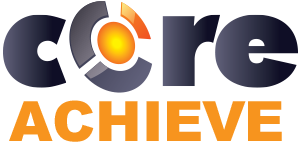Leveraging an LMS for Customer Support and Service Training
June, 13 2023
Other posts:
Enhancing Team Dynamics for Effective Group Decision-Making with LMS Integration
Organizations increasingly rely on collaborative efforts to solve complex problems, innovate, and adapt to change, but how do we ensure that collaboration is happening.
Maximizing Small Business Potential with Training Technology
Training technologies can push small businesses ahead of their competitors, but what are the factors that go into choosing the right technology?
Unlocking Employee Potential: The Transformative Benefits of an Interactive Learning Management System (LMS)
Interactive training allows for unlocking employee potential, but how is it done?
Building a Robust Sales Pipeline with Training
Every organization wants a streamlined sales pipeline, but building one requires a series of interlocking activities with one of the most important being training.
Strategies for Adapting In-Person Training to Online Platforms
Online training is one of the most flexible ways of delivering training across organizations, but how do you even begin to adapt in-person training into online?
In the modern competitive landscape, customer support can be a deciding factor for customer loyalty. A Learning Management System (LMS) can help make your customer support and experience not only better, but standout
Customer support and service have always been vital for maintaining customer satisfaction and loyalty, but, in today’s online business landscape, they are a deciding factor for many customers. Organizations across various industries are increasingly turning to Learning Management Systems (LMS) to train and upskill their customer support teams. By exploring the benefits and strategies of using an LMS for customer support and service training, one can empower their organization to deliver exceptional customer experiences.
Consistent Training Delivery
Customer support teams play a crucial role in representing an organization and delivering consistent service experiences. An LMS allows organizations to provide standardized training content to all customer support agents, ensuring a uniform knowledge base. This consistency in training will naturally translate to the customer as well, leading to a universal support experience regardless of who’s helping the customer.
Onboarding and Continuous Training
An LMS facilitates the onboarding process for new customer support agents, enabling them to quickly grasp the organization's products, services, and customer service protocols. With comprehensive training modules, interactive videos, and quizzes, new agents can acquire the necessary skills and knowledge before it directly impacts the customer. Furthermore, an LMS supports continuous training, allowing organizations to provide ongoing learning opportunities, updates on new products or services, and training on emerging customer support trends.
Role-specific Learning Paths
Customer support teams often have different roles and responsibilities, such as frontline agents, supervisors, or managers. An LMS enables organizations to create role-specific learning paths tailored to each position within the customer support hierarchy. By providing targeted training materials and resources based on specific roles, organizations can equip their customer support teams with the skills and knowledge required to excel in their respective positions.
With less generalization, support agents will also know what is in their power to do—something that is often a pain point for both customers and employees.
Interactive and Engaging Content
Traditional customer support training methods can be dull and monotonous, resulting in disengaged learners. However, an LMS offers a variety of interactive and engaging content formats. Organizations can incorporate videos, simulations, case studies, and gamified quizzes to make the training experience more immersive and enjoyable. Interactive content not only enhances knowledge retention but also promotes active participation and critical thinking among customer support agents.
Assessments and Performance Tracking
An LMS enables organizations to create assessments and quizzes to evaluate the comprehension and competency of customer support agents. By incorporating assessments at various stages of the training process, organizations can identify knowledge gaps and areas for improvement. Additionally, an LMS provides performance tracking features that allow supervisors and managers to monitor individual and team progress, identify top performers, and address any skill deficiencies effectively.
Mobile Learning and Just-in-Time Support
Customer support agents are often required to provide immediate assistance and access information on the go. An LMS with mobile learning capabilities ensures that customer support agents can access training materials and resources conveniently through their mobile devices. Moreover, an LMS can serve as a repository of reference materials, job aids, and troubleshooting guides, providing just-in-time support to customer support agents when they encounter specific customer queries or challenges.
Delivering exceptional customer support and service requires well-trained and knowledgeable customer support teams. By leveraging an LMS for customer support and service training, organizations can provide consistent training delivery, streamline onboarding and continuous training, offer role-specific learning paths, create interactive and engaging content, assess performance, and provide mobile learning and just-in-time support. By embracing the power of an LMS, organizations can equip their customer support teams with the skills and knowledge necessary to deliver exceptional customer experiences, ultimately enhancing customer satisfaction and loyalty.
Get started with CoreAchieve today for free.
Photo by Berkelery Communications on Unsplash

Leave comment: